
CRA-E Professional Development Workshop for Teaching-Track Faculty
The CRA Education Committee is organizing a “Professional Development Workshop for Teaching-Track Faculty” on on February 21 in conjunction with SIGCSE 2018.

Tag Archive: CRAE
Articles relevant to the CRA Education Committee (CRAE).

The CRA Education Committee is organizing a “Professional Development Workshop for Teaching-Track Faculty” on on February 21 in conjunction with SIGCSE 2018.
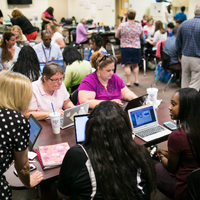
The CRA Education Committee has added a new resource, “Teaching Computer Science: Capacity Building and Scaling,” to its website. To help departments and faculty deal with this capacity crunch, this scaling capacity resource is intended to provide a platform for sharing technological and pedagogical interventions for addressing capacity challenges.
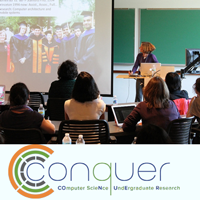
The CRA Education Committee is excited to announce a new and improved version of its Conquer website (conquer.cra.org) for CS undergraduates interested in research and graduate school. The site also has resources for faculty who are interested in mentoring undergraduate research and helping their students apply to graduate school.

This award program honors faculty members in computing who have made a significant impact on students they have mentored. The CRA-E Undergraduate Research Faculty Mentoring Award recognizes faculty members who have provided exceptional mentorship and undergraduate research experiences and, in parallel, guidance on admission and matriculation of these students to research-focused graduate programs in computing.

The CRA Education Committee is now accepting applications for the CRA-E Graduate Fellows Program. The program provides opportunities for Ph.D. candidates in computing fields to contribute to CRA-E projects, network with computer science education advocates on the committee, engage in advocacy for mentoring undergraduate students and promote undergraduate research and education at the national level.
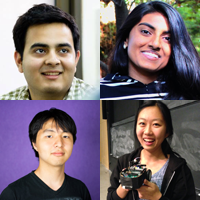
The Computing Research Association is pleased to announce the annual CRA Award for Outstanding Undergraduate Researchers, which recognizes undergraduate students in North American colleges and universities who show outstanding research potential in an area of computing research. The award is a wonderful way to recognize your best student researchers and your department. Beginning this year, departments that regularly nominate students for this award will be highlighted on the CRA website. In addition, a number of students who receive honorable mentions and above will be invited to describe their research in the new monthly “Undergraduate Research Highlights” series on the CRA-E website.
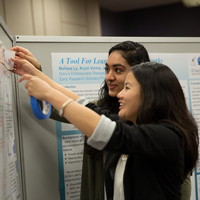
Engaging undergraduates in research can be an effective way to increase their confidence, perception of science, and sense of belonging. But at many large research universities, it can be difficult for undergraduate students—especially early undergraduates—to find research opportunities. Furthermore, even when they find opportunities, they might not have the background, training, or support to be successful. These issues are particularly acute for women and other underrepresented groups in computer science as they tend to have less pre-college computer science experience. The program is working with CERP to understand the impact ERSP has on its participants.
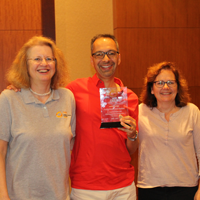
At the CRA Education (CRA-E) Committee meeting in June, Lori Pollock (University of Delaware) stepped up to replace Ran Libeskind-Hadas (Harvey Mudd College) as CRA-E co-chair. She will join current co-chair Susanne Hambrusch (Purdue University), and Libeskind-Hadas will remain a member of the CRA-E committee.

CRA’s Education Committee (CRA-E) is pleased to welcome its new 2017 CRA-E Graduate Student Fellow – Booma Sowkarthiga Balasubramani. The Graduate Fellows Program was established in 2015 to give graduate students the opportunity to contribute to CRA-E projects, engage in advocacy for mentoring undergraduate students, and promote computer science research and undergraduate education at the national level.
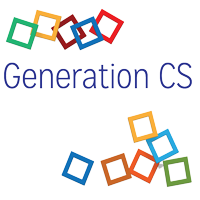
To investigate the current situation, CRA produced an enrollment survey to measure, assess, and better understand enrollment trends and their impact on computer science units, diversity, and more. Part of this effort included a survey of doctoral- and non-doctoral granting academic units in fall 2015. Generation CS: CS Enrollments Surge Since 2006 reports the survey results with respect to majors, nonmajors, diversity, impact on academic units, and units’ actions in response to the surge and is now available on the CRA website.
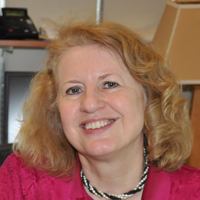
The main focus of my recent research has been computer science education and the role computer science can play in defining and advancing its own education research. Learning computational principles and learning to code is hard, and teaching these subjects is even harder. For most computer science topics, we know very little about how different learners’ best learn; how to effectively teach the material to audiences with different abilities, backgrounds, and goals; and how to reliably assess learning.
This website uses cookies so that we can provide you with the best user experience possible. Cookie information is stored in your browser and performs functions such as recognising you when you return to our website and helping our team to understand which sections of the website you find most interesting and useful. You can adjust all of your cookie settings.
